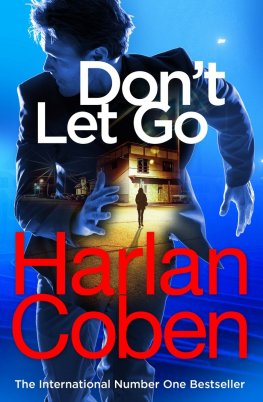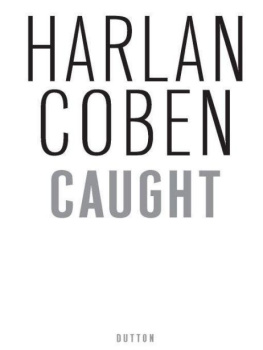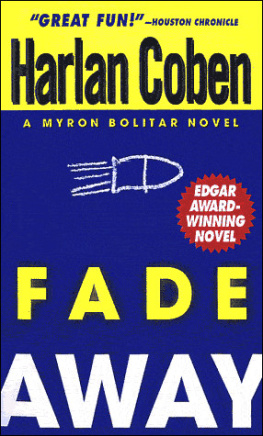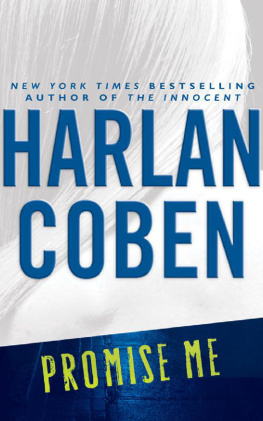Harlen Coben - The Woods
Here you can read online Harlen Coben - The Woods full text of the book (entire story) in english for free. Download pdf and epub, get meaning, cover and reviews about this ebook. year: 2007, publisher: Orion, genre: Detective and thriller. Description of the work, (preface) as well as reviews are available. Best literature library LitArk.com created for fans of good reading and offers a wide selection of genres:
Romance novel
Science fiction
Adventure
Detective
Science
History
Home and family
Prose
Art
Politics
Computer
Non-fiction
Religion
Business
Children
Humor
Choose a favorite category and find really read worthwhile books. Enjoy immersion in the world of imagination, feel the emotions of the characters or learn something new for yourself, make an fascinating discovery.
- Book:The Woods
- Author:
- Publisher:Orion
- Genre:
- Year:2007
- Rating:5 / 5
- Favourites:Add to favourites
- Your mark:
- 100
- 1
- 2
- 3
- 4
- 5
The Woods: summary, description and annotation
We offer to read an annotation, description, summary or preface (depends on what the author of the book "The Woods" wrote himself). If you haven't found the necessary information about the book — write in the comments, we will try to find it.
The Woods — read online for free the complete book (whole text) full work
Below is the text of the book, divided by pages. System saving the place of the last page read, allows you to conveniently read the book "The Woods" online for free, without having to search again every time where you left off. Put a bookmark, and you can go to the page where you finished reading at any time.
Font size:
Interval:
Bookmark:
The Woods
Harlan Coben
*
PROLOGUE:
SEE MY FATHER WITH THAT SHOVEL.
There are tears streaming down his face. An awful, guttural sob forces its way up from deep in his lungs and out through his lips. He raises the shovel up and strikes the ground. The blade rips into the earth like it's wet flesh. I am eighteen years old, and this is my most vivid memory of my father him, in the woods, with that shovel. He doesn't know I'm watching. I hide behind a tree while he digs. He does it with a fury, as though the ground has angered him and he is seeking vengeance.
I have never seen my father cry before not when his own father died, not when my mother ran off and left us, not even when he first heard about my sister, Camille. But he is crying now. He is crying with out shame. The tears cascade down his face in a freefall. The sobs echo through the trees.
This is the first time I've spied on him like this. Most Saturdays he would pretend to be going on fishing trips, but I never really believed that. I think I always knew that this place, this horrible place, was his secret destination.
Because, sometimes, it is mine too.
I stand behind the tree and watch him. I will do this eight more times. I never interrupt him. I never reveal myself. I think he doesn't know that I am there. I am sure of it, in fact. And then one day, as he heads to his car, my father looks at me with dry eyes and says, "Not to day, Paul. Today I go alone."
I watch him drive off. He goes to those woods for the last time.
On his deathbed nearly two decades later, my father takes my hand.
He is heavily medicated. His hands are rough and calloused. He used them his whole life, even in the flusher years in a country that no longer exists. He has one of those tough exteriors where all the skin looks baked and hard, almost like his own tortoise shell. He has been in immense physical pain, but there are no tears.
He just closes his eyes and rides it out.
My father has always made me feel safe, even now, even though I am now an adult with a child of my own. We went to a bar three months ago, when he was still strong enough. A fight broke out. My father stood in front of me, readying to take on anyone who came near me. Still. That is how it is. I look at him in the bed. I think about those days in the woods. I think about how he dug, how he finally stopped, how I thought he had given up after my mother left.
"Paul?"
My father is suddenly agitated.
I want to beg him not to die, but that wouldn't be right. I had been here before. It doesn't get better, not for anyone.
"Its okay, Dad," I tell him. "It's all going to be okay."
He does not calm down. He tries to sit up. I want to help him, but he shakes me off. He looks deep into my eyes and I see clarity, or maybe that is one of those things that we make ourselves believe at the end. A final false comfort.
One tear escapes his eye. I watch it slowly slide down his cheek.
"Paul," my father says to me, his voice still thick with a Russian accent. "We still need to find her."
"We will, Dad."
He checks my face again. I nod, assure him. But I don't think that he is looking for assurance. I think, for the first time, he is looking for guilt.
"Did you know?" he asks, his voice barely audible.
I feel my entire body quake, but I don't blink, don't look away. I wonder what he sees, what he believes. But I will never know. Because then, right then, my father closes his eyes and dies.
Chapter I
Three Months Later
I WAS SITTING IN AN ELEMENTARY SCHOOL GYMNASIUM, watching my six-year-old daughter, Cara, nervously navigate across a balance beam that hovered maybe four inches off the floor, but in less than an hour, I would be looking at the face of a man who'd been viciously murdered.
That should not shock anyone.
I have learned over the years, in the most horrible ways imaginable, that the wall between life and death, between extraordinary beauty and mind-boggling ugliness, between the most innocent setting and a frightening bloodbath, is flimsy. It takes a second to tear through it. One moment, life appears idyllic. You are in a place as chaste as an elementary school gymnasium. Your little girl is twirling. Her voice is giddy. Her eyes are closed. You see her mothers face there, the way her mother used to close her eyes and smile, and you remember how flimsy that wall really is.
"Cope?"
It was my sister-in-law, Greta. I turned to her. Greta looked at me with her normal concern. I smiled through it.
"What are you thinking about?" she whispered.
She knew. I lied anyway.
"Handheld video cameras," I said.
"What?"
The folding chairs had all been taken by the other parents. I stood in the back, arms crossed, leaning against the cement wall. There were rules posted above the doorway and those annoyingly cute inspirational aphorisms like "Don't Tell Me the Sky's the Limit When There Are Footprints on the Moon" scattered throughout. The lunch tables were folded in. I leaned against that, feeling the cool of the steel and metal. Elementary school gyms never change as we age. They just seem to grow smaller.
I gestured at the parents. "There are more video cameras here than kids."
Greta nodded.
"And the parents, they film everything. I mean, everything. What do they do with all that? Does anybody really watch this again from beginning to end?"
"You don't?"
"I'd rather give birth."
She smiled at that. "No," she said, "you wouldn't."
"Okay, yeah, maybe not, but didn't we all grow up in the MTV generation? Quick cuts. Lots of angles. But to just film this straight out like this, to subject an unsuspecting friend or family member to that'a"
The door opened. The moment the two men stepped into the gym I could tell that they were cops. Even if I didn't have a fair amount of experience, I am the county prosecutor for Essex County, which includes the rather violent city of Newark, I would know. Television does indeed get some stuff right. The way most cops dressed, for example, fathers in the lush suburb of Ridgewood don't dress that way. We don't don suits when we come to see our kids perform quasi-gymnastics. We wear corduroys or jeans with a V-neck over a T-shirt. These two guys wore ill-fitted suits in a brown hue that reminded me of wood chips after a rainstorm.
They were not smiling. Their eyes scanned the room. I know most of the cops in the area, but I didn't know these guys. That troubled me.
Something felt wrong. I knew that I hadn't done anything, of course, but there was still a little I'm-innocent-but-I-still-feel-guilty flutter in my stomach.
My sister-in-law, Greta, and her husband, Bob, have three kids of their own. Their youngest daughter, Madison, was six years old and in the same class as my Cara. Greta and Bob have been a tremendous help.
After my wife, Jane, Greta's sister, died, they moved to Ridgewood. Greta claims that they had planned on doing that anyway. I doubt it. But I am so grateful that I don't question it much. I can't imagine what it would be like without them.
Usually the other fathers stand in the back with me, but since this was a daytime event, there were very few here. The mothers, except for the one now glaring at me over her video camera because she overheard my anti-video-cam-rant, adore me. It is not me, of course, but my story. My wife died five years ago, and I raise my daughter alone. There are other single parents in town, mostly divorced mothers, but I get a ton of slack. If I forget to write a note or pick up my daughter late or leave her lunch on the counter, the other mothers or the staff in the school office chip in and help. They think my male helplessness is cute. When a single mother does any of those things, she is neglectful and on the receiving end of the superior moms' scorn.
Next pageFont size:
Interval:
Bookmark:
Similar books «The Woods»
Look at similar books to The Woods. We have selected literature similar in name and meaning in the hope of providing readers with more options to find new, interesting, not yet read works.
Discussion, reviews of the book The Woods and just readers' own opinions. Leave your comments, write what you think about the work, its meaning or the main characters. Specify what exactly you liked and what you didn't like, and why you think so.

